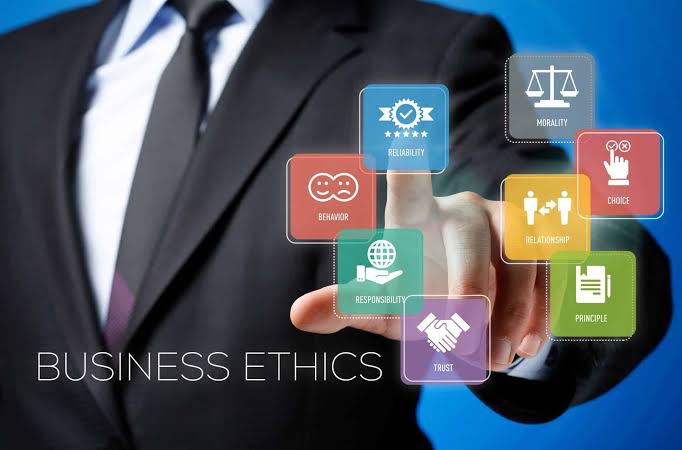
The evolution of business ethics is shaping customer expectations like never before. Brands must align values with practices to earn trust and loyalty. Discover how ethical marketing, corporate social responsibility, and transparent communication can transform businesses.
Table of Contents
- Introduction: Ethics—A Non-Negotiable Business Pillar
- The Evolution of Business Ethics: Why It Matters
- Evolution Of Business Ethics: What Customers Expect from Ethical Brands
- Aligning Values with Practices: A Blueprint for Success
- The Role of Social Media in Ethical Marketing: Evolution Of Business Ethics
- Case Studies: Brands Winning with Ethics
- Conclusion: The Future of Ethical Business
Introduction: Ethics—A Non-Negotiable Business Pillar
In today’s competitive market, ethics is no longer a secondary concern—it’s a business necessity. Consumers are not just buying products; they’re investing in brands that reflect their values. The evolution of business ethics has transformed how companies operate, compelling them to align their values with their actions.
From sustainability to transparency, customers demand accountability. If a brand fails to meet ethical standards, social media amplifies the backlash instantly. But when done right, ethical business practices foster loyalty, trust, and long-term success.
So, how has the evolution of business ethics reshaped consumer expectations, and how can brands align their values with their practices? Let’s break it down.
The Evolution of Business Ethics: Why It Matters
Ethics in business isn’t a new concept, but its definition has evolved. Decades ago, compliance with legal standards was sufficient. Today, customers expect companies to go beyond mere legalities and actively contribute to social and environmental causes.
Some key shifts in the evolution of business ethics include:
- Transparency Over Tactics: Consumers demand honesty in advertising, pricing, and corporate policies. Greenwashing and misleading campaigns are no longer tolerated.
- Sustainability as a Standard: Ethical businesses prioritize eco-friendly sourcing, waste reduction, and sustainable production.
- Corporate Social Responsibility (CSR): Companies engage in philanthropy, fair trade, and ethical labor practices to demonstrate their commitment to society.
This shift is not just a trend; it’s a business imperative. A recent survey found that 77% of consumers are more likely to buy from brands that align with their values.
Evolution Of Business Ethics: What Customers Expect from Ethical Brands
Modern consumers don’t just hope for ethical behavior—they demand it. Here’s what they expect:
1. Transparency & Authenticity
Customers want clear, honest communication. If a brand makes sustainability claims, they must back them up with facts and actions.
2. Fair & Ethical Sourcing
From cruelty-free beauty products to ethically sourced coffee, buyers expect brands to ensure fair wages and humane working conditions.
3. Social Responsibility in Action
Ethical business goes beyond profit—it involves giving back. Customers prefer brands that support charitable causes, community development, and sustainability initiatives.
4. Digital Accountability
With social media driving conversations, businesses must be prepared to address ethical concerns head-on. A delayed or insincere response to criticism can damage brand reputation.
Aligning Values with Practices: A Blueprint for Success
Ethics should be ingrained in business operations, not just in marketing campaigns. Here’s how brands can align their values with their actions:
1. Define Core Ethical Values
Establish clear guidelines for business practices, ensuring that they align with consumer expectations.
2. Implement Ethical Supply Chains
Work with suppliers that share the same commitment to sustainability, fair trade, and responsible sourcing.
3. Train Employees on Ethical Standards
From customer service to leadership, every employee should understand and uphold the company’s ethical framework.
4. Be Transparent in Marketing
Avoid deceptive tactics. Whether it’s influencer marketing, product claims, or pricing strategies, honesty is the best policy.
5. Measure & Report Ethical Impact
Regularly assess corporate social responsibility (CSR) initiatives and share progress with consumers.
The Role of Social Media in Ethical Marketing: Evolution Of Business Ethics
Social media has revolutionised the evolution of business ethics. Consumers now hold brands accountable in real time. But brands can also leverage social media for good.
1. Show, Don’t Just Tell
Instead of just stating ethical commitments, brands should showcase their actions—behind-the-scenes sustainability efforts, ethical sourcing practices, and community projects.
2. Engage in Honest Conversations
Acknowledge mistakes, answer concerns, and communicate openly. Brands that take responsibility for missteps gain customer trust.
3. Partner with Ethical Influencers
Consumers trust influencers who align with ethical values. Collaborating with socially responsible content creators enhances credibility.
Case Studies: Brands Winning with Ethics
Patagonia: A Sustainability Pioneer
Patagonia leads in ethical business practices, from using recycled materials to donating a portion of profits to environmental causes. Their “Don’t Buy This Jacket” campaign encouraged mindful consumption—boosting brand trust.
The Body Shop: Cruelty-Free Commitment
The Body Shop’s strong stance on cruelty-free products and ethical sourcing has positioned them as a leader in ethical beauty. Their transparency in supply chain management is a model for others.
TOMS: Business with a Purpose
TOMS’ “One for One” initiative, donating shoes for every pair sold, showcases how aligning values with actions creates long-term brand loyalty.
Conclusion: The Future of Ethical Business
The evolution of business ethics is not a passing phase—it’s the future. Customers expect brands to integrate ethics into their business DNA, not just their marketing campaigns. Aligning values with practices builds brand loyalty, credibility, and long-term success.
Is your brand ready to meet customer expectations?
✔️ Conduct an ethics audit
✔️ Align your marketing strategy with core values
✔️ Engage authentically with your audience
It’s time to evolve. Ethical business isn’t just good for the world—it’s good for business.





